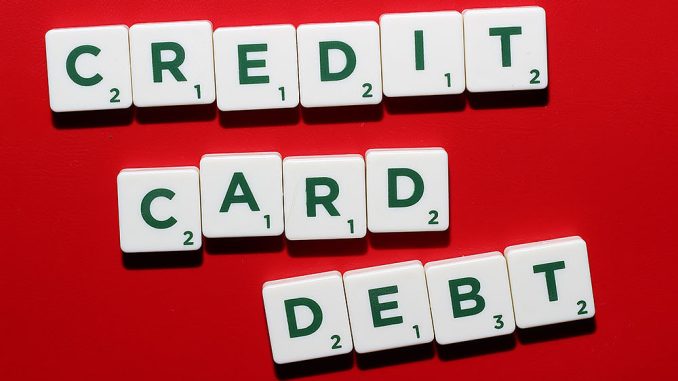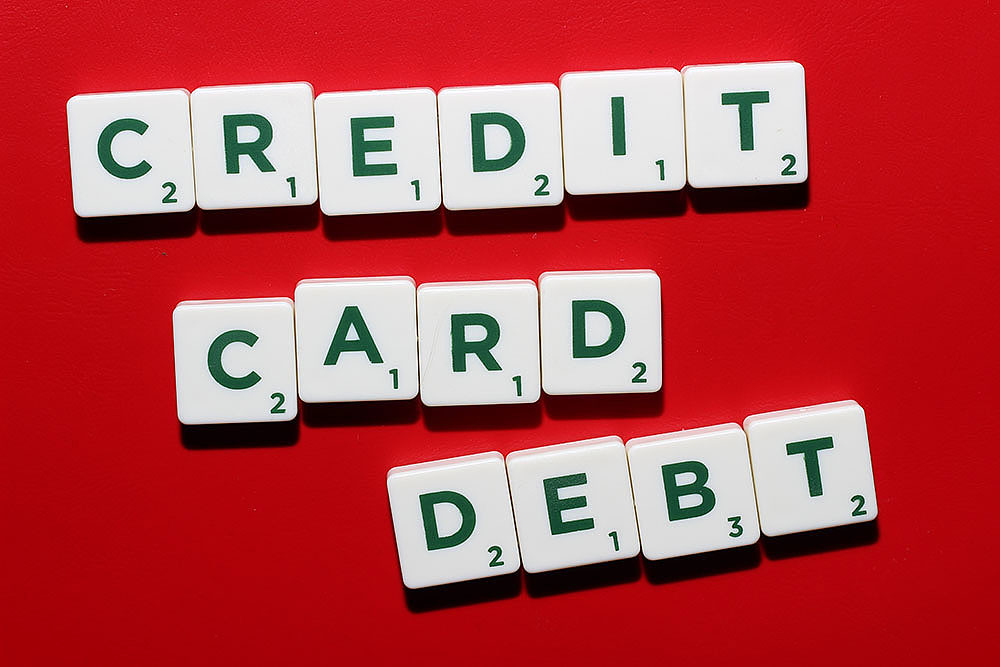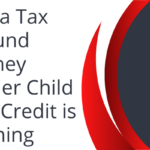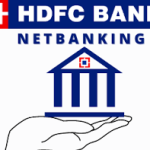5 Ways to Avoid Credit Card Debt
Credit cards can be a helpful financial tool, but they can also lead to significant debt if not managed properly. With interest rates and fees, it’s easy to find yourself drowning in credit card debt. So, how can you avoid this financial pitfall? In this article, we will explore five ways to prevent credit card debt, ensuring you can enjoy the benefits of credit cards without the risks.

Understanding Credit Cards
How Credit Cards Work
A credit card is essentially a line of credit provided by a financial institution. Cardholders can make purchases using the card, and then pay off the balance later, usually within a grace period of about 25 to 30 days. If the balance isn’t paid off in full by the due date, interest charges are applied, which can quickly accumulate and lead to debt.
The Risks of Credit Card Debt
Credit card debt can lead to a number of negative consequences, such as lowered credit scores, increased interest rates, and difficulty obtaining loans or mortgages. Additionally, it can be a source of financial stress and may contribute to long-term financial instability.
Way 1: Create a Budget and Stick to It
Importance of Budgeting
Creating a budget is an essential step in managing your finances and avoiding credit card debt. A budget helps you understand your monthly income, expenses, and how much you can afford to spend on discretionary items.
Tips for Successful Budgeting
- Categorize your expenses.
- Determine your spending limits for each category.
- Track your spending regularly.
- Adjust your budget as needed.
- Stick to your budget by setting goals and holding yourself accountable.
- Here is 4 more simple way to avoid credit debt
Way 2: Pay Your Balances in Full Each Month
Avoiding Interest Charges
To avoid interest charges, make sure to pay your credit card balance in full each month. This ensures you won’t accrue interest on your purchases, helping you avoid debt.
Setting Up Auto-Payments
To make it easier to pay your balances in full, consider setting up auto-payments. This will ensure your payments are made on time, and you won’t have to worry about forgetting a payment.
Way 3: Use Credit Cards Responsibly
Knowing Your Spending Limits
Responsible credit card use means knowing your spending limits and not exceeding them. Only charge what you can afford
to pay off in full each month, and avoid making impulse purchases that can lead to debt.
Utilizing Credit Card Rewards Wisely
Credit card rewards can be a great benefit, but it’s important to use them responsibly. Don’t overspend just to earn rewards, as this can lead to debt. Instead, focus on using your card for necessary purchases and paying off the balance in full each month.
Way 4: Monitor Your Credit Card Statements
Tracking Your Expenses
Regularly reviewing your credit card statements can help you stay on top of your spending and identify any discrepancies. By tracking your expenses, you can make adjustments to your budget as needed and avoid overspending.
Identifying Fraudulent Charges
Monitoring your credit card statements also allows you to quickly identify any fraudulent charges. If you notice any suspicious activity, report it to your credit card company immediately to prevent further unauthorized transactions and potential debt.
Way 5: Have an Emergency Fund
Importance of an Emergency Fund
An emergency fund is a savings account set aside for unexpected expenses, such as medical bills, car repairs, or job loss. By having an emergency fund, you can avoid relying on credit cards for these unplanned expenses, preventing debt.
How to Build an Emergency Fund
- Determine how much you need in your emergency fund, typically 3-6 months’ worth of living expenses.
- Set a monthly savings goal.
- Automatically transfer funds to your emergency savings account each month.
- Resist the temptation to use these funds for non-emergency expenses.
Conclusion
Avoiding credit card debt is possible by following these five strategies: creating a budget, paying your balances in full each month, using credit cards responsibly, monitoring your statements, and having an emergency fund. By implementing these practices, you can enjoy the benefits of credit cards without falling into the debt trap.
FAQs
- How can I pay off my existing credit card debt? Create a debt repayment plan, focusing on paying off high-interest debt first, and consider seeking the help of a financial advisor or credit counselor.
- What should I do if I can’t pay my credit card bill in full? Pay as much as you can, even if it’s just the minimum payment, to avoid late fees and negative impacts on your credit score.
- How many credit cards should I have? There’s no definitive answer, as it depends on your financial situation and ability to manage multiple accounts. Generally, it’s best to have a small number of cards that you can manage responsibly.
- Can I still use credit cards if I’ve had issues with debt in the past? Yes, but use them cautiously and follow the strategies outlined in this article to prevent falling back into debt.
- How can I improve my credit score while avoiding debt? Pay your balances in full each month, maintain a low credit utilization rate, and ensure timely payments on all accounts. Additionally, avoid opening too many new accounts or closing old ones, as this can impact your credit score.Additional Tips for Avoiding Credit Card Debt
Way 6: Limit the Number of Credit Cards You Use
Fewer Cards, Easier Management
Managing multiple credit cards can be challenging, especially when it comes to keeping track of balances, due dates, and rewards. By limiting the number of credit cards you use, you can more easily manage your spending and avoid potential debt.
Choosing the Right Card for You
When selecting a credit card, consider factors such as interest rates, fees, and rewards programs. Choose a card that aligns with your spending habits and financial goals, and remember that more cards do not necessarily mean better financial management.
Way 7: Seek Professional Financial Advice
When to Seek Help
If you’re struggling to manage your finances or feel overwhelmed by credit card debt, it may be helpful to seek the guidance of a professional financial advisor or credit counselor. They can provide personalized advice and help you develop a plan to achieve your financial goals.
Finding a Reputable Advisor
When looking for a financial advisor or credit counselor, be sure to research their credentials, experience, and reputation. Seek recommendations from friends or family, and consider working with a non-profit credit counseling agency for unbiased advice.
Way 8: Educate Yourself About Personal Finance
The Importance of Financial Literacy
Understanding personal finance concepts is crucial for managing your money effectively and avoiding credit card debt. By educating yourself on topics such as budgeting, saving, investing, and credit management, you can make informed financial decisions and develop healthy money habits.
Resources for Learning
There are numerous resources available for learning about personal finance, including books, websites, blogs, podcasts, and online courses. Take advantage of these resources to expand your financial knowledge and improve your money management skills.
Way 9: Communicate with Your Credit Card Company
Negotiating Interest Rates and Fees
If you’re struggling with high interest rates or fees, consider reaching out to your credit card company to discuss your options. Many companies are willing to negotiate rates and fees for responsible customers, which can help you save money and avoid debt.
Setting Up Payment Plans
In cases where you’re unable to pay your credit card balance in full, contact your credit card company to discuss setting up a payment plan. This can help you avoid late fees and minimize the impact on your credit score while you work toward paying off your debt.
Way 10: Be Mindful of Balance Transfers
Understanding Balance Transfers
Balance transfers involve moving debt from one credit card to another, often to take advantage of lower interest rates. While this can be a useful strategy for managing debt, it’s important to be mindful of potential pitfalls.
Potential Risks of Balance Transfers
Transferring balances can come with fees, and low promotional interest rates often expire after a certain period, leading to higher rates later on. Additionally, balance transfers can impact your credit score if not managed carefully. Make sure to fully understand the terms and conditions of a balance transfer before proceeding.
By incorporating these additional strategies into your financial routine, you can further reduce the risk of falling into credit card debt and maintain a healthier financial future.
Way 11: Set and Review Financial Goals Regularly
Establishing Financial Goals
Setting clear financial goals can help you stay focused on your priorities and guide your spending habits. Examples of financial goals include saving for a down payment on a house, building an emergency fund, or paying off existing debt.
Reviewing and Adjusting Goals
Regularly review and adjust your financial goals to ensure they align with your current financial situation and priorities. By staying committed to your goals, you can make better financial decisions and avoid the temptation to accumulate credit card debt.
Way 12: Practice Mindful Spending
Understanding Your Spending Triggers
To prevent impulsive spending, take the time to understand your spending triggers. These could include emotions, social situations, or marketing tactics. By being aware of what drives your spending, you can make more conscious decisions and avoid unnecessary credit card debt.
Implementing Mindful Spending Habits
Develop mindful spending habits by asking yourself questions before making a purchase, such as:
- Do I really need this item?
- Can I afford it without using credit?
- Have I compared prices and shopped around for the best deal?
- How will this purchase impact my financial goals?
By taking the time to think through your spending decisions, you can avoid impulse purchases and stay in control of your finances.
Way 13: Utilize Financial Tools and Apps
Tracking Expenses and Budgeting
There are numerous financial tools and apps available to help you manage your finances, track expenses, and maintain a budget. Examples include Mint, YNAB (You Need a Budget), and Personal Capital. By utilizing these tools, you can gain a better understanding of your spending habits and make adjustments to prevent credit card debt.
Credit Monitoring and Alerts
Some financial apps and tools also offer credit monitoring services and alerts, allowing you to keep a close eye on your credit score and credit card activity. This can help you identify potential issues early on and take corrective action before they lead to debt.
Way 14: Develop Healthy Money Habits
Creating a Routine
Developing healthy money habits can help you manage your finances effectively and avoid credit card debt. Create a routine that includes checking your bank accounts, reviewing your budget, and evaluating your progress toward financial goals.
Building Long-term Financial Stability
By consistently practicing healthy money habits, you can build a strong foundation for long-term financial stability. This includes paying off existing debt, saving for the future, and investing in assets that can help you grow your wealth over time.
Way 15: Don’t Be Afraid to Seek Help from Friends and Family
Sharing Financial Challenges
Discussing financial challenges with trusted friends and family members can provide valuable support and advice. They may have experienced similar situations and can offer insights on how to overcome obstacles and prevent credit card debt.
Building Accountability and Encouragement
Sharing your financial goals with others can also help you stay accountable and motivated. Knowing that others are aware of your goals and progress can encourage you to stay on track and make responsible financial decisions.
By incorporating these additional strategies into your financial planning, you can further reduce the risk of falling into credit card debt, maintain a healthy financial lifestyle, and build a more secure future for yourself and your loved ones.
Way 16: Prioritize Debt Repayment
Debt Snowball vs. Debt Avalanche
If you have existing credit card debt, it’s important to prioritize paying it off. Two popular methods for tackling debt are the debt snowball and debt avalanche. The debt snowball method involves paying off your smallest debts first, while the debt avalanche method focuses on paying off the highest interest debts first. Choose the method that works best for you, and create a plan to pay off your credit card debt as quickly as possible.
Avoiding New Debt While Paying Off Existing Debt
While paying off your existing credit card debt, avoid accumulating new debt by limiting your credit card usage and sticking to your budget. This will help you make steady progress toward becoming debt-free.
Way 17: Avoid Expensive Credit Card Fees
Understanding Credit Card Fees
Credit card fees can add up quickly and contribute to debt. Common fees include annual fees, balance transfer fees, cash advance fees, foreign transaction fees, and late payment fees.
Ways to Minimize Credit Card Fees
To minimize credit card fees, consider the following strategies:
- Choose a credit card with no or low annual fees.
- Be aware of balance transfer fees and only transfer balances when it makes financial sense.
- Avoid cash advances, as they often come with high fees and interest rates.
- Use a credit card with no foreign transaction fees when traveling abroad.
- Pay your credit card bills on time to avoid late payment fees.
Way 18: Build and Maintain a Good Credit Score
Benefits of a Good Credit Score
A good credit score can help you qualify for lower interest rates on loans, better credit card offers, and more favorable terms on financial products. By maintaining a good credit score, you can reduce the cost of borrowing and minimize the risk of falling into credit card debt.
How to Improve Your Credit Score
To improve your credit score, follow these tips:
- Pay your bills on time, including credit cards, loans, and utilities.
- Keep your credit utilization ratio low, ideally below 30%.
- Avoid applying for multiple new credit accounts in a short period of time.
- Maintain a mix of credit accounts, such as credit cards, installment loans, and mortgages.
- Check your credit report regularly and dispute any errors.
Way 19: Stay Informed About Financial News and Trends
Benefits of Financial Awareness
Staying informed about financial news and trends can help you make better financial decisions and avoid potential pitfalls, such as rising interest rates or economic downturns, that could lead to credit card debt.
Sources of Financial Information
There are many sources of financial information, including news websites, financial blogs, podcasts, and social media. By regularly consuming financial content, you can stay up-to-date on important developments and gain insights from experts in the field.
Way 20: Celebrate Financial Milestones
Recognizing Progress
Achieving financial milestones, such as paying off a credit card or reaching a savings goal, is an important part of maintaining motivation and staying on track. Celebrate your progress by acknowledging your accomplishments and sharing your successes with friends and family.
Staying Motivated
Celebrating financial milestones can help you stay motivated to continue making responsible financial decisions and avoiding credit card debt. Use your successes as motivation to continue working toward your financial goals and building a secure financial future.
By implementing these additional strategies, you can further decrease the likelihood of falling into credit card debt and enjoy a more stable and successful financial life. Remember that achieving financial success is an ongoing process, and staying vigilant and proactive is key to maintaining a healthy financial lifestyle.
Way 21: Create a Separate Savings Account for Large Purchases
Benefits of a Separate Savings Account
Creating a separate savings account for large purchases, such as vacations, home renovations, or new appliances, can help you avoid relying on credit cards to cover these expenses. By saving in advance, you can make these purchases without incurring debt.
Setting Savings Goals for Large Purchases
Determine how much you need to save for a specific large purchase, and set a monthly savings goal. Automatically transfer the desired amount into the separate savings account each month, and avoid using these funds for other purposes.
Way 22: Avoid Retail Store Credit Cards
Risks of Store Credit Cards
Retail store credit cards often come with high interest rates and limited rewards, making them less advantageous than other credit cards. Additionally, store credit cards can encourage impulse spending and lead to debt.
Choosing the Right Credit Card
Instead of applying for store credit cards, research credit card options with lower interest rates, better rewards, and more favorable terms. This can help you avoid accumulating debt from store-specific cards that may not provide the best financial benefits.
Way 23: Be Cautious of Credit Card Promotions
Understanding Credit Card Promotions
Credit card promotions, such as introductory interest rates or cashback offers, can be appealing but also have the potential to lead to debt. Before signing up for a promotional offer, make sure you understand the terms and conditions and how they may impact your finances.
Avoiding Debt from Promotions
To avoid debt from credit card promotions:
- Be aware of when promotional rates expire and plan for any potential increase in interest rates.
- Don’t overspend just to earn rewards or cashback offers.
- Make sure you can pay off any balance accumulated during a promotional period before the standard interest rate takes effect.
Way 24: Focus on Building Long-term Wealth
Investing and Saving for the Future
Focusing on building long-term wealth through investing and saving can help you avoid credit card debt by keeping your financial priorities in mind. By concentrating on growing your wealth, you’re less likely to rely on credit cards for short-term spending and more likely to make responsible financial decisions.
Seeking Professional Investment Advice
If you’re unsure of how to start investing or want to improve your investment strategy, consider seeking the help of a professional financial advisor. They can provide guidance on building a diverse investment portfolio and help you develop a long-term wealth-building plan.
Way 25: Be Prepared for Life Changes
Planning for Financial Transitions
Life changes, such as starting a family, changing jobs, or retiring, can have a significant impact on your finances. Being prepared for these transitions can help you avoid relying on credit cards to cover unexpected expenses during these periods of change.
Creating a Financial Plan for Life Changes
To prepare for financial transitions:
- Review your budget and make any necessary adjustments.
- Consider how your income, expenses, and financial goals may be affected by the life change.
- Develop a financial plan that accounts for the new circumstances and helps you maintain financial stability.
By incorporating these additional strategies into your financial planning, you can further reduce the risk of falling into credit card debt and continue building a secure financial future for yourself and your loved ones. Remember, maintaining financial health requires ongoing effort, and the key to success is staying proactive and committed to responsible money management.
Way 26: Regularly Review Your Credit Card Statements
Monitoring Your Expenses
Regularly reviewing your credit card statements can help you stay on top of your spending and identify any potential issues or errors. By monitoring your expenses, you can make adjustments to your budget and spending habits as needed to avoid accumulating debt.
Identifying Fraudulent Charges
Reviewing your credit card statements also allows you to catch any unauthorized or fraudulent charges. By identifying these charges early, you can report them to your credit card company and prevent further damage to your finances.
Way 27: Make Use of Balance Alerts
Setting Up Alerts
Many credit card companies offer balance alerts, which notify you when your credit card balance reaches a certain threshold. By setting up balance alerts, you can stay informed about your credit card usage and make adjustments to your spending as needed.
Avoiding Overspending
Balance alerts can help prevent overspending by reminding you when your credit card balance is approaching your predetermined limit. This can encourage you to reevaluate your spending habits and avoid accumulating unnecessary debt.
Way 28: Implement a Zero-Based Budget
Understanding a Zero-Based Budget
A zero-based budget is a budgeting method where your income minus your expenses equals zero. This means that every dollar you earn is allocated to a specific category, such as rent, groceries, savings, or debt repayment. By implementing a zero-based budget, you can ensure that all your money is being used effectively and responsibly.
How a Zero-Based Budget Can Help Avoid Credit Card Debt
A zero-based budget can help you avoid credit card debt by providing a clear picture of your income and expenses, making it easier to identify areas where you can cut back on spending. By allocating all your income to specific expenses, you can reduce the likelihood of overspending and relying on credit cards to cover the shortfall.
Way 29: Don’t Use Credit Cards for Everyday Expenses
The Dangers of Using Credit for Routine Purchases
Using credit cards for everyday expenses, such as groceries or gas, can lead to overspending and the accumulation of debt. By relying on credit for routine purchases, you may lose track of your spending and struggle to pay off your balance in full each month.
Using Debit or Cash for Everyday Expenses
Instead of using credit cards for everyday expenses, consider using a debit card or cash. This can help you maintain a more accurate picture of your spending and avoid incurring credit card debt.






